Spinal Cord Injury
How to submit an article:
- Registered users can submit any published journal article that has a unique DOI (Digital Object Identifier) name or link to Research Hub.
- For example, you can paste the full DOI link:
https://doi.org/10.1109/5.771073or just the DOI name:10.1109/5.771073into the field above and click submit. - The person who is first to submit a valid article to Research Hub will forever be credited for it, and every article submission earns you +6 Research Points.
Related Topics
Published research studies are articles that present the findings of original research that has undergone a peer-review process and has been made publicly available in scholarly journals, books or other media.
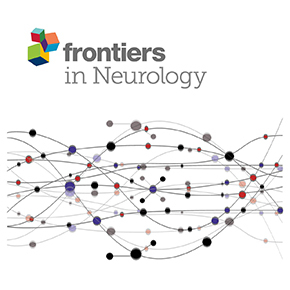
A bibliometric of research trends in acupuncture for spinal cord injury: Quantitative and qualitative analyses
2022 Sep 15 Frontiers in Neurology Huang Y, He K, Fang D, Ni F, Qiu B, Liang K, et al.
The findings suggest that research on acupuncture for SCI is still flourishing, and more research on electroacupuncture for promoting nerve repair and regeneration after SCI will be available in the future.
Meta-Analysis Spinal Cord Injury
A bibliometric of research trends in acupuncture for spinal cord injury: Quantitative and qualitative analyses
2022 Sep 15 Frontiers in Neurology Yi Huang, Kelin He, Dandan Fang, Fengjia Ni, Bei Qiu, Kang Liang and Ruijie Ma
The findings suggest that research on acupuncture for SCI is still flourishing, and more research on electroacupuncture for promoting nerve repair and regeneration after SCI will be available in the future.
Meta-Analysis Acupuncture Spinal Cord Injury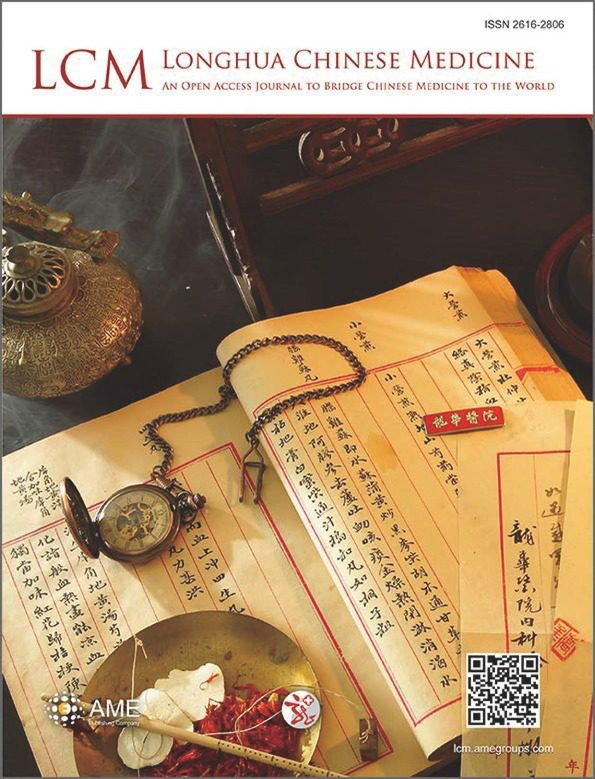
Effectiveness of electroacupuncture for a patient with a complete traumatic spinal cord injury: a case report
2022 Jun Longhua Chinese Medicine Alcoba Kait J, Estivill E, Cabanas-Valdés R
This single case is presented to improve the positive effects of electroacupuncture (EA) in spinal cord injury (SCI). The patient started her treatment with a diagnosis of complete T12 SCI that evolves to an Incomplete SCI (T12 sensory and L3 motor).
Case Report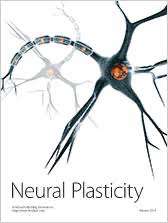
Effects and Mechanisms of Acupuncture Combined with Mesenchymal Stem Cell Transplantation on Neural Recovery after Spinal Cord Injury: Progress and Prospects
2020 Sep 25 Neural Plasticity Huiling Tang, Yi Guo, Yadan Zhao, Songtao Wang, Jiaqi Wang, Wei Li, et al.
The combination of acupuncture and MSCs transplantation could become a novel and effective strategy for the treatment of SCI. Such a possibility needs to be verified by basic and clinical research.
Review Article Spinal Cord Injury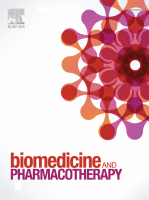
Research progress in use of traditional Chinese medicine for treatment of spinal cord injury
2020 Apr 23 Biomedicine & Pharmacotherapy Yubao Lu, Jingjing Yang, Xuexi Wang, Zhanjun Ma, Sheng Li, Zhaoyang Liu, et al.
Systematic ReviewTraditional Chinese medicine treatments can serve as promising auxiliary therapies for functional recovery of patients with spinal cord injury.
Research insights are moderated by the Research Hub team and offer an at-a-glance overview of interesting research findings.

2020 Biomedicine & Pharmacotherapy
Traditional Chinese medicine treatments can serve as promising auxiliary therapies for functional recovery of patients with spinal cord injury.
Systematic Review
Research progress in use of traditional Chinese medicine for treatment of spinal cord injury
Yubao Lu, Jingjing Yang, Xuexi Wang, Zhanjun Ma, Sheng Li, Zhaoyang Liu, et al.
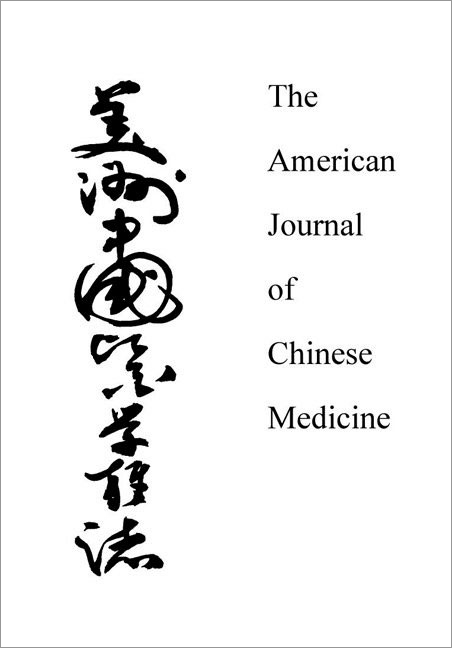
2020 The American Journal of Chinese Medicine
Current evidence suggests that Chinese herbal medicine is an effective and safe treatment for spinal cord injury and could be treated as a complementary and alternative option with few side effects.
Systematic Review Bu Yang Huan Wu
Chinese Herbal Medicine in Treatment of Spinal Cord Injury: A Systematic Review and Meta-Analysis of Randomized Controlled Trials
Zheng Y, Qi S, Wu F, Hu J, Zhong R, Hua C, et al.

2019 Evidence-Based Complementary and Alternative Medicine
Acupuncture can significantly increase motor function and daily living ability of individuals who suffer from spinal cord injury, especially acupuncture of the back + front or the head + back.
Systematic Review
The Effect of Different Acupuncture Therapies on Neurological Recovery in Spinal Cord Injury: A Systematic Review and Network Meta-Analysis of Randomized Controlled Trials
Feng Xiong , Chenying Fu, Qing Zhang, Lihong Peng , Zejun Liang , Li Chen, et al.
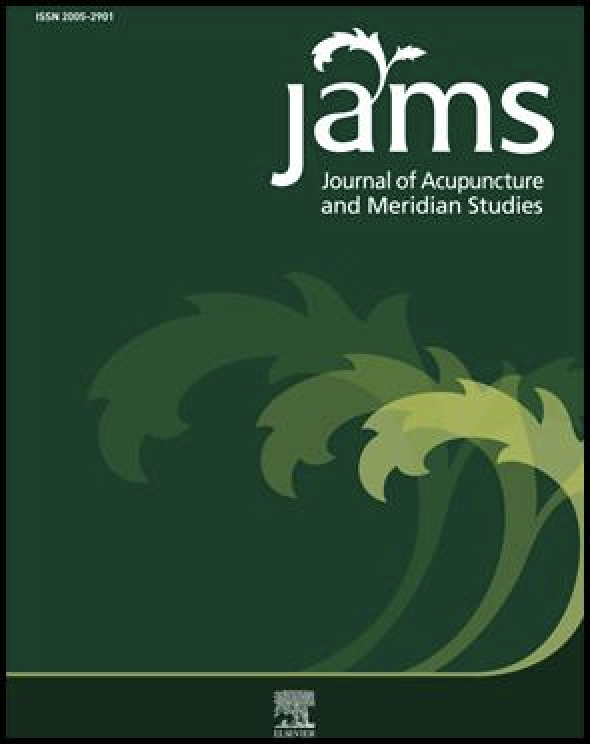
2018 Journal of Acupuncture and Meridian Studies
Acupuncture effectively manages a range of post-spinal cord injury complications, including motor and sensory dysfunction, pain, neurogenic bowel and bladder, pressure ulcers, spasticity, and osteoporosis.
Review Article
Spinal Cord Injury: How Could Acupuncture Help?
Qianqian, F., Omer, C., Lize, X., et al.

2016 Evidence-Based Complementary and Alternative Medicine
Acupuncture as a complementary therapy may have a potential effect in chronic urinary retention due to spinal cord injury in decreasing postvoid residual urine volume and improving bladder voiding.
Systematic Review
Acupuncture for Chronic Urinary Retention due to Spinal Cord Injury: A Systematic Review
Jia Wang, Yanbing Zhai, Jiani Wu, Shitong Zhao, Jing Zhou, Zhishun Liu
Review Articles
Review articles summarise and critically evaluate the current state of research on a specific topic or field by synthesising multiple primary research studies.

Effects and Mechanisms of Acupuncture Combined with Mesenchymal Stem Cell Transplantation on Neural Recovery after Spinal Cord Injury: Progress and Prospects
2020 Sep 25 Neural Plasticity Huiling Tang, Yi Guo, Yadan Zhao, Songtao Wang, Jiaqi Wang, Wei Li, et al.
The combination of acupuncture and MSCs transplantation could become a novel and effective strategy for the treatment of SCI. Such a possibility needs to be verified by basic and clinical research.
Review Article Spinal Cord Injury
Research progress in use of traditional Chinese medicine for treatment of spinal cord injury
2020 Apr 23 Biomedicine & Pharmacotherapy Yubao Lu, Jingjing Yang, Xuexi Wang, Zhanjun Ma, Sheng Li, Zhaoyang Liu, et al.
Systematic ReviewTraditional Chinese medicine treatments can serve as promising auxiliary therapies for functional recovery of patients with spinal cord injury.

Chinese Herbal Medicine in Treatment of Spinal Cord Injury: A Systematic Review and Meta-Analysis of Randomized Controlled Trials
2020 Jan 5 The American Journal of Chinese Medicine Zheng Y, Qi S, Wu F, Hu J, Zhong R, Hua C, et al.
Systematic Review Meta-Analysis Bu Yang Huan Wu Spinal Cord InjuryCurrent evidence suggests that Chinese herbal medicine is an effective and safe treatment for spinal cord injury and could be treated as a complementary and alternative option with few side effects.

The Effect of Different Acupuncture Therapies on Neurological Recovery in Spinal Cord Injury: A Systematic Review and Network Meta-Analysis of Randomized Controlled Trials
2019 Oct Evidence-Based Complementary and Alternative Medicine Feng Xiong , Chenying Fu, Qing Zhang, Lihong Peng , Zejun Liang , Li Chen, et al.
Systematic Review Meta-Analysis Spinal Cord InjuryAcupuncture can significantly increase motor function and daily living ability of individuals who suffer from spinal cord injury, especially acupuncture of the back + front or the head + back.

Spinal Cord Injury: How Could Acupuncture Help?
2018 May 30 Journal of Acupuncture and Meridian Studies Qianqian, F., Omer, C., Lize, X., et al.
Review ArticleAcupuncture effectively manages a range of post-spinal cord injury complications, including motor and sensory dysfunction, pain, neurogenic bowel and bladder, pressure ulcers, spasticity, and osteoporosis.
Clinical Trials
Clinical trials are research studies that involve people and are conducted to evaluate the safety and efficacy of new treatments or interventions, such as drugs, medical devices, or behavioural therapies.
Study Protocols
Published study protocols are detailed plans that outline the objectives, methodology, statistical analyses, and organisation of a research study that have been made publicly available for others to review and use as a reference.
Presentation Slides

Systematic Review
Traditional Chinese medicine treatments can serve as promising auxiliary therapies for functional recovery of patients with spinal cord injury.
Yubao Lu, Jingjing Yang, Xuexi Wang, Zhanjun Ma, Sheng Li, Zhaoyang Liu, Xuegong Fan

Systematic Review
Current evidence suggests that Chinese herbal medicine is an effective and safe treatment for spinal cord injury and could be treated as a complementary and alternative option with few side effects.
Zheng Y, Qi S, Wu F, Hu J, Zhong R, Hua C, Jiang D, Quan R

Systematic Review
Acupuncture can significantly increase motor function and daily living ability of individuals who suffer from spinal cord injury, especially acupuncture of the back + front or the head + back.
Feng Xiong , Chenying Fu, Qing Zhang, Lihong Peng , Zejun Liang , Li Chen, Chengqi He,and Quan Wei

Review Article
Acupuncture effectively manages a range of post-spinal cord injury complications, including motor and sensory dysfunction, pain, neurogenic bowel and bladder, pressure ulcers, spasticity, and osteoporosis.
Qianqian, F., Omer, C., Lize, X., & Yun, X.

Systematic Review
Acupuncture as a complementary therapy may have a potential effect in chronic urinary retention due to spinal cord injury in decreasing postvoid residual urine volume and improving bladder voiding.
Jia Wang, Yanbing Zhai, Jiani Wu, Shitong Zhao, Jing Zhou, Zhishun Liu
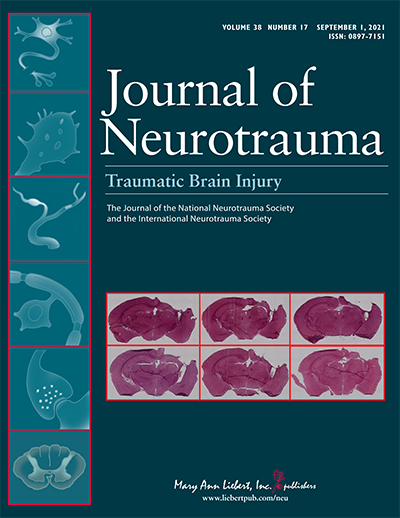
Systematic Review
Acupuncture may have a beneficial effect on neurological recovery, motor function, and functional recovery in spinal cord injury.
Ruijie Ma, Xin Liu, Justin Clark, Gail M. Williams, and Suhail A. Doi

Systematic Review
Acupuncture can be useful to treat spinal cord injury and its complications if patients experience side effects or have no (or a weak) response to a conventional treatment.
In Heo, Byung-Cheul Shin, Young-Dae Kim, Eui-Hyoung Hwang, Chang Woo Han, Kwang-Ho Heo
Executive Summary
Write an executive summary in the form of a blog article on the topic of "Research into Chinese medicine treatment for Spinal Cord Injury" summarising the research below and using language that can be easily understood by patients and avoiding medical jargon using a professional and caring tone of voice.
Write an executive summary in the form of a blog article on the topic of "Researched Chinese medicine treatments for Spinal Cord Injury" summarising the research below in an objective and easy to understand way, and using language that can be easily understood by patients. Group the article into Chinese medicine treatments first, followed by nutrition and other treatments. Avoid using medical jargon and use a professional and caring tone of voice.
Write me a concise but easy to understand executive summary on the topic of "Chinese medicine treatments for Spinal Cord Injury" based on the following research that I will give you. Your summary should be 2 paragraphs long in Australian English spelling and include references to the studies.
A Systematic Review published in 2020 in the journal Biomedicine & Pharmacotherapy found that Traditional Chinese medicine treatments can serve as promising auxiliary therapies for functional recovery of patients with spinal cord injury. The literature search identified a total of 652 articles regarding traditional Chinese medicine for spinal cord injury. Twenty-eight treatments (16 active ingredients, nine herbs, and three compound prescriptions) were selected from these articles; the treatments have been used for the prevention and treatment of SCI. In general, these treatments involved antioxidative, anti-inflammatory, neuroprotective, and/or antiapoptotic effects of TCM compounds. This paper showed that TCM treatments can serve as promising auxiliary therapies for functional recovery of patients with SCI. These findings will contribute to the development of diversified treatments for SCI.
A Systematic Review published in 2020 in the journal The American Journal of Chinese Medicine found that Current evidence suggests that Chinese herbal medicine is an effective and safe treatment for spinal cord injury and could be treated as a complementary and alternative option with few side effects. A total of 26 studies involving 1961 participants were included in this study. No serious heterogeneity or publication bias was observed across each study. The results showed that significant improvements of the American Spinal Injury Association (ASIA)-grading improvement rate, clinical effective rate, ASIA motor score, ASIA sensory score (total), ASIA sensory score (light touch) ASIA sensory score (pinprick) and activities of daily living (ADL) score in CHM group compared with the control group. Among the CHM groups, Buyang Huanwu decoction was the most frequently prescribed herbal formula, while Astragalus membranaceus was the most commonly used single herb. In addition, there were no serious and permanent adverse effects in the two groups. The methodological quality of the most included RCTs was poor and the quality of evidence for the main outcomes was from very low to moderate according to the GRADE system. Current evidence suggests that CHM is an effective and safe treatment for SCI and could be treated as a complementary and alternative option with few side effects. However, considering the low quality, small size, and high risk of the studies identified in this meta-analysis, higher methodological quality, rigorously designed RCTs with large sample sizes are needed to confirm the results.
A Systematic Review published in 2019 in the journal Evidence-Based Complementary and Alternative Medicine found that Acupuncture can significantly increase motor function and daily living ability of individuals who suffer from spinal cord injury, especially acupuncture of the back + front or the head + back. We used Bayesian frameworks to compare various acupuncture therapies and rehabilitation (and medicine), and the results showed that acupuncture may be an effective and safe treatment, and there are differences between existing acupuncture therapies for spinal cord injury. And, its ranking chart may be useful for clinical practice and further research. In terms of data processing, we used scores at the end of treatment to arrive at clinically valuable conclusions. The main results of the ranking chart showed that the acupuncture on the back + front, the back + head is most effective in improving muscle strength, followed by the back and back + limbs, head + limbs, limbs, back + front + limbs, and simple rehabilitation training (and drugs); while the back + front is most effective in improving the ability of daily life, followed by the back + head, back + limbs, back + front + limbs, back, rehabilitation training, limbs, and head + limbs.
A Review Article published in 2018 in the journal Journal of Acupuncture and Meridian Studies found that Acupuncture effectively manages a range of post-spinal cord injury complications, including motor and sensory dysfunction, pain, neurogenic bowel and bladder, pressure ulcers, spasticity, and osteoporosis. The effect of acupuncture on post-spinal cord injury orthostatic hypotension and sexual dysfunction remains unclear. Decreased oxidative stress, inhibition of inflammation and neuronal apoptosis, regulation of the expression and activity of endogenous biological mediators, and increased regenerative stem cell production are the possible mechanisms of acupuncture therapy for spinal cord injury. Although many limitations have been reported in previous studies, given the evidence for the efficacy of acupuncture, we recommend that physicians should support the use of acupuncture therapy for SCI complications.
A Systematic Review published in 2016 in the journal Evidence-Based Complementary and Alternative Medicine found that Acupuncture as a complementary therapy may have a potential effect in chronic urinary retention due to spinal cord injury in decreasing postvoid residual urine volume and improving bladder voiding. Acupuncture plus rehabilitation training was much better than rehabilitation training alone in decreasing postvoid residual urine volume for chronic urinary retention due to spinal cord injury, and combination of acupuncture and aseptic intermittent catheterization was more effective than aseptic intermittent catheterization alone in improving response rates for chronic urinary retention due to spinal cord injury.
A Systematic Review published in 2015 in the journal Journal of Neurotrauma found that Acupuncture may have a beneficial effect on neurological recovery, motor function, and functional recovery in spinal cord injury. Pooled analyses showed that acupuncture may have a beneficial effect on neurological recovery, motor function, and functional recovery and all statistical approaches concurred. Sensitivity analyses suggested that the smaller studies (sample size <30), those with acute disease, and studies that used varying acupuncture sessions demonstrated a larger magnitude of effect. However, studies were generally of poor quality and publication bias favoring positive studies was evident. Therefore, the benefit of acupuncture we report is by no means definitive and well-designed future studies are recommended to confirm this.
A Systematic Review published in 2013 in the journal Evidence-Based Complementary and Alternative Medicine found that Acupuncture can be useful to treat spinal cord injury and its complications if patients experience side effects or have no (or a weak) response to a conventional treatment. This is the first systematic review and meta-analysis of RCTs that fully evaluates the effectiveness of needle acupuncture for spinal cord injury (SCI) and its complications. Of the 16 trials included in this paper, 8 trials studied the effects of acupuncture on functional recovery in SCI and 8 trials that studied its effect on the secondary complications that follow SCI (6 trials for bladder dysfunction, and 2 trials for pain levels). The results of our systematic review and meta-analysis suggest that the evidence for the effectiveness of acupuncture as a symptomatic treatment for SCI and its complications is encouraging but limited. Although the effectiveness of acupuncture is unclear in SCI or its complications, acupuncture therapy is a relatively convenient and safe treatment for some conditions. SCI patients who receive long-term rehabilitation or medication treatments may occasionally need a safe nonpharmacological treatment. In this regard, acupuncture can be useful to treat SCI and its complications if patients experience side effects or have no (or a weak) response to a conventional treatment.
Moderation Tools
Topic
Sign In
Users not signed in are limited to viewing the 5 most recent items of content.
"In short, the back + front, and the back + head strategy are the most effective ones. The best strategies would involve the acupoints in the back and the head" — 7 Sep 2021